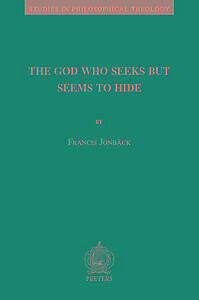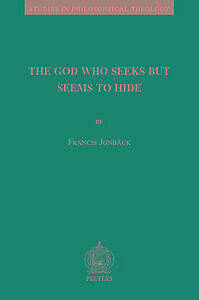
- Afhalen na 1 uur in een winkel met voorraad
- Gratis thuislevering in België vanaf € 30
- Ruim aanbod met 7 miljoen producten
- Afhalen na 1 uur in een winkel met voorraad
- Gratis thuislevering in België vanaf € 30
- Ruim aanbod met 7 miljoen producten
Zoeken
Omschrijving
Assuming that there is an all-powerful, all-knowing, perfectly good God who seeks a loving relationship with all humans, it is puzzling that certain people experience that God seems to hide. It is often argued that this fact of 'divine hiding' renders it improbable that God exists. In this study, Francis Jonback defends the view that it would not be surprising if divine hiding were necessary to realise greater goods or to avoid worse evils that are beyond our ken, in which case one is not justified in saying that divine hiding renders it improbable that God exists. He goes on to argue that it is difficult to explain why God hides and that - although believers do not have a probabilistic problem with believing in a God who seems to hide there might be an existential or practical problem, in particular for non-believers, when seeking a God who seems to hide.
Specificaties
Betrokkenen
- Auteur(s):
- Uitgeverij:
Inhoud
- Aantal bladzijden:
- 135
- Taal:
- Engels
- Reeks:
- Reeksnummer:
- nr. 63
Eigenschappen
- Productcode (EAN):
- 9789042934931
- Verschijningsdatum:
- 8/05/2017
- Uitvoering:
- Paperback
- Formaat:
- Trade paperback (VS)
- Afmetingen:
- 160 mm x 239 mm
- Gewicht:
- 249 g

Alleen bij Standaard Boekhandel
+ 82 punten op je klantenkaart van Standaard Boekhandel
Beoordelingen
We publiceren alleen reviews die voldoen aan de voorwaarden voor reviews. Bekijk onze voorwaarden voor reviews.











